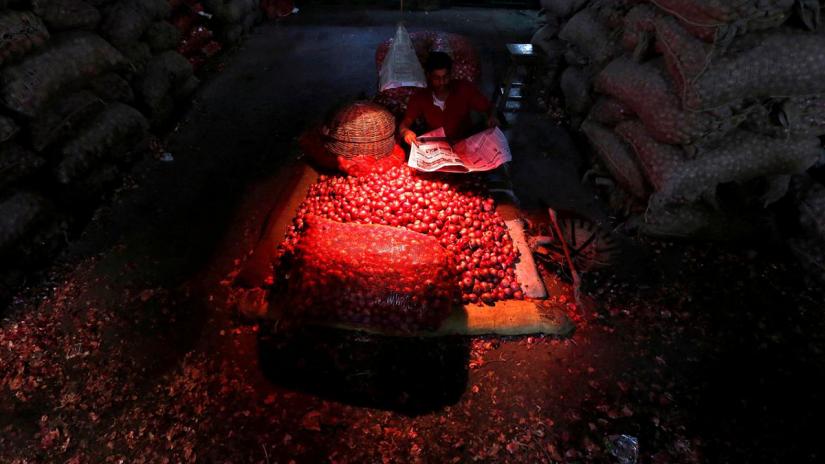 Prices of onion in Bangladesh skyrocketed since India announced on Sunday (Sept 29) that it will be stopping onion export.
Prices of onion in Bangladesh skyrocketed since India announced on Sunday (Sept 29) that it will be stopping onion export.
The ban comes days before Bangladeshi Prime Minister Sheikh Hasina’s official visit to Delhi in October.
The Bangladeshi market took a hit immediately after the announcement, with consumers scrambling to stock up on onions and the businessmen hiking prices to Tk 120-150 per kilogram.
The government took immediate measures with importing onions from Myanmar and Turkey and the Trading Corporation of Bangladesh (TCB) selling onions for Tk 45 per kilograms. They also set up monitoring teams to keep the market in check.
India’s ban, however, was met with stark surprise from the Bangladeshi side given that the two countries share friendly ties and Dhaka cleared the export of 500 tonne of Hilsha on the occasion of Durga Puja. The question that arises is why did Delhi suddenly halt exports?
India, the world's biggest seller of the Asian diet staple, banned exports after heavy downpour and floods delayed harvests causing supplies to shrivel.
The Indian government took strict measures to impose the ban. The New York Times reported that the border check posts have been alerted so that “not a single onion can cross the border.”
The onion carrying trucks were immediately put on hold at all the check posts immediately after the order. As a matter of fact the orders for which letters of credit (LCs) were already opened have not been cleared either.
A senior official of the Indian commerce ministry said that they know full well neighbouring Bangladesh won’t see the ban positively especially before the upcoming visit of its premier to Delhi.
“We still had to ban exports in a state of complete helplessness,” he said.
Previously on Sept 13, India set the minimum import price to $850 per tonne from $ to curb its shipments and help bring down soaring prices in the domestic market due to floods in parts of major growing states of Maharashtra and Karnataka.
However, exports to Nepal, Sri Lanka and Bangladesh, three of its biggest markets, didn’t go down.
India’s Consumer Protection Secretary AK Shrivastav wrote to the director general of foreign trade Alok Chaturvedi saying that in order to keep onion prices stable, export should be banned. The official order soon followed.
Prices of onions hit the roofs in India with per kilogram selling for Rs 100 from the previous Rs 20 per kilo after heavy downpour at Maharashtra’s Nasik.
Delhi’s Jawaharlal Nehru University faculty and food historian Pushpesh Pant says that onion is closely tied to North Indian politics.
“There have been instances of governments falling in India due to rise in onion prices,” he said and added that for a large group it’s a staple.
He viewed the complete ban and other steps taken by the Indian government to check prices as a “knee jerk reaction.”
The ruling Bharatiya Janata Party bent on to holding on to power at Maharashtra and Haryana where the legislative assembly votes are scheduled to be held in less than three weeks.
The legislative assembly votes in Eastern India’s Jharkhand and capital Delhi are also drawing near and there’s fear that high prices can heat up the elections.
Moreover, high onion prices are bound to put a damper on the celebration for the biggest Hindu festival Durga Puja.
The Indian commerce ministry official said that the ban was imposed prioritizing the domestic demands.






